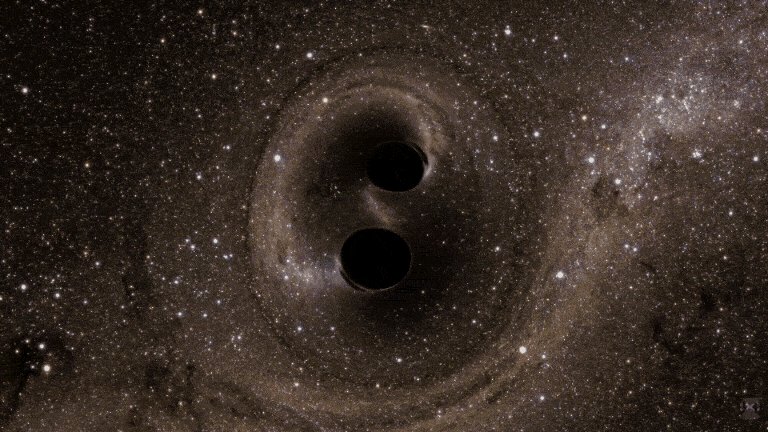Love Really Is Sweet, Science Reveals

Get the world’s most fascinating discoveries delivered straight to your inbox.
You are now subscribed
Your newsletter sign-up was successful
Want to add more newsletters?

Delivered Daily
Daily Newsletter
Sign up for the latest discoveries, groundbreaking research and fascinating breakthroughs that impact you and the wider world direct to your inbox.

Once a week
Life's Little Mysteries
Feed your curiosity with an exclusive mystery every week, solved with science and delivered direct to your inbox before it's seen anywhere else.

Once a week
How It Works
Sign up to our free science & technology newsletter for your weekly fix of fascinating articles, quick quizzes, amazing images, and more

Delivered daily
Space.com Newsletter
Breaking space news, the latest updates on rocket launches, skywatching events and more!

Once a month
Watch This Space
Sign up to our monthly entertainment newsletter to keep up with all our coverage of the latest sci-fi and space movies, tv shows, games and books.

Once a week
Night Sky This Week
Discover this week's must-see night sky events, moon phases, and stunning astrophotos. Sign up for our skywatching newsletter and explore the universe with us!
Join the club
Get full access to premium articles, exclusive features and a growing list of member rewards.
Even water tastes sweeter when you're in love, new research finds.
But not every emotion heightens the senses. Jealousy fails to bring out bitter or sour tastes, despite metaphors that suggest it might, researchers report in the December 2013 issue of the journal Emotion.
That love alters one's sensory perceptions and jealousy does not is important to psychologists who study what are called "embodied" metaphors, or linguistic flourishes people quite literally feel in their bones. For example, studies have shown that people induced to feel lonely rate the temperature of the room as colder than do their unprimed counterparts. And the idea that important things have heft plays out physically, too: When someone believes a book is important, it feels heavier.
Read more: 12 scientifically proven signs of love
But "just because there is a metaphor does not necessarily imply that we will get these kind of sensations and perception effects," said study researcher Kai Qin Chan, a doctoral candidate at Radboud University Nijmegen in the Netherlands.
The taste of love
After seeing previous research on emotional metaphors, like the studies linking loneliness to coldness and heaviness to importance, Chan and his colleagues wanted to expand the question.
Get the world’s most fascinating discoveries delivered straight to your inbox.
"We always say, 'love is sweet,' 'honey baby,' this kind of thing," Chan told LiveScience. "We thought, let's see whether this applies to love." [How Do I Love Thee? Experts Count 8 Ways]
Because Chan speaks Mandarin Chinese, he also wondered about jealousy, for which there is a Mandarin metaphor: chi cu. It literally means, "to ingest vinegar." There are similar metaphors in German, Chan said.
After surveying students at the National University of Singapore to be sure that they were aware of the "love is sweet" and "jealousy is bitter" metaphor, Chan and his colleagues conducted three experiments with students at the same university.
In the first two studies, researchers asked students to write about an experience either with romantic love or with jealousy, or about a neutral topic. Next, scientists had the students taste either Ribena Pastilles (a sweet-and-sour gummy candy) or Meiji Morinaga bittersweet chocolates.
The candies balanced bitter and sweet and bitter and sour equally, and it required a lot of taste-testing to find that quality.
"I bought like $80 worth of candies, because I was trying to find a suitable one," Chan said. "I was eating candies practically every day."
Metaphor made real
After tasting the candies, the students (197 in total) ranked the treats' sweetness, bitterness and sourness. Those who had written about love ranked both candies as sweeter than those who had written about jealousy or a neutral topic. But writing about jealousy had no effect on rankings of bitterness.
Next, the researchers repeated the study, but this time asking 93 new student-volunteers to sample distilled water instead of candy. Researchers told the students the water was a new drink product and asked them to rate its sweetness, bitterness and sourness.
Again, love made the water taste sweeter — even though it had no real taste at all. Jealousy did not affect the water's taste.
The finding is important for two reasons, Chan said. First of all, the fact that even water tastes sweeter when people think about love reveals that the emotion isn't acting on the taste receptors on the tongue, making them more sensitive to sugar. There's no sugar in the water, after all. Instead, the effect must arise from the brain's processing of the taste information.
Second, the lack of an effect caused by jealousy reveals language alone doesn't influences the senses — metaphors have to go deeper. Chan and his colleagues suspect that embodied metaphors develop only after a lot of experience. The linkage of love with the physical experience of sweetness may go back to infancy, he said. Babies start their lives drinking breast milk or formula, both of which are sweet, and may learn to associate that taste with their mother's love.
Similarly, a parent's physical warmth might be linked with closeness and acceptance, and being alone might be linked with feeling cold from an early age, Chan said. Even heaviness and importance have a physical linkage. Important books like dictionaries tend to be large and heavy, while fluffy reading usually comes in the form of lightweight paperbacks.
Editor's note: This article was updated on Jan. 23 to correct the Mandarin spelling and translation of the phrase "chi cu."
Follow Stephanie Pappas on Twitterand Google+. Follow us @livescience, Facebook& Google+. Original article on LiveScience.

Stephanie Pappas is a contributing writer for Live Science, covering topics ranging from geoscience to archaeology to the human brain and behavior. She was previously a senior writer for Live Science but is now a freelancer based in Denver, Colorado, and regularly contributes to Scientific American and The Monitor, the monthly magazine of the American Psychological Association. Stephanie received a bachelor's degree in psychology from the University of South Carolina and a graduate certificate in science communication from the University of California, Santa Cruz.
 Live Science Plus
Live Science Plus










